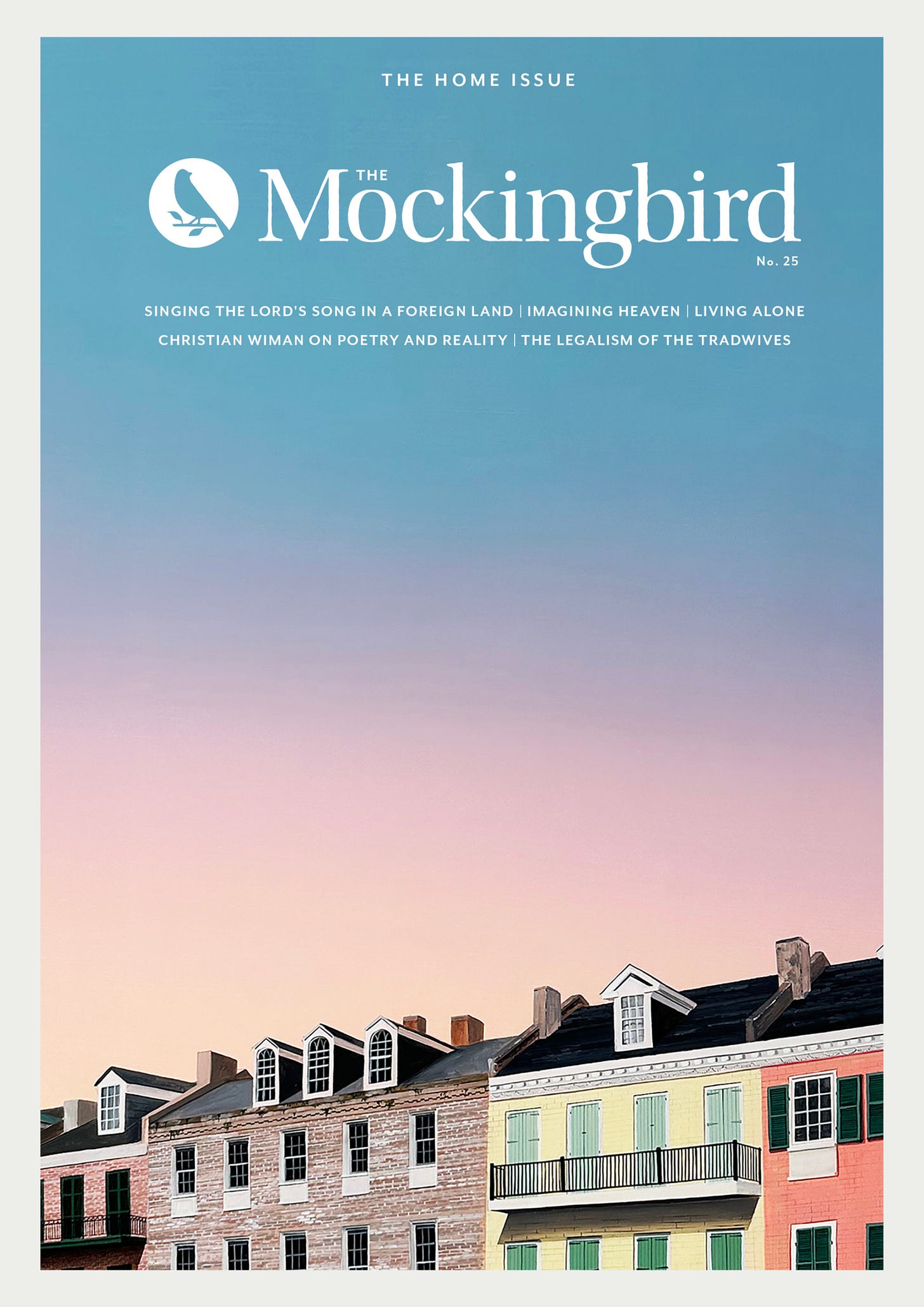Learning to Live in Subtraction
An excerpt from a piece published in The Mockingbird's latest journal
A year after we moved to a little cottage on the edge of an Adirondack river, a windstorm rushed in, catching itself on the small island across from our home. As it blew, it broke off the tops of box elders and beeches, birch and willows, a few maples and at least one poplar tree that I can see. On an early spring morning, before the buds have burst and the leaves have filled in the gaps, the hundred bare trees left on the island are all broken at the same point. A skyward fault line.
The poet W.H. Auden wrote that “a culture is no better than its woods,” and I think of this line often when I stare out my home office window, the one that faces the river and island. When one reads the morning news or watches the evening views or even takes a personal inventory of one’s own life these days, it would be easy to believe the fault lines are the foundational type, great shifts and chasms that change the topography of our world. But when I think of my own life these days, I think less of cracks in the earth and more of toppled trees. After recent years there is almost nothing in my life that remains untoppled, and sometimes the grief feels too much to bear.
On days when the river is particularly high, from snowmelt or a rainstorm, one can paddle a kayak or canoe through the submerged island itself, and work through bowing river willows and every type of hawthorn known to humankind. I have paddled this route several times myself, and it is not just the rooted river trees that I’ve needed to navigate; it is the treetops that have all fallen every which way, rerouting the water and wildlife — and even the ground level of the island itself.
Scientists in one of the world’s most primal ecosystems, the H.J. Andrews Experimental Forest in Oregon, say that of all the nutrient-rich qualities in a forest — lichen and mycelia, leaves and forest litter — it is fallen logs themselves that “are the most overlooked of the critical components of the living ecosystem” (from The Hidden Forestby Jon R. Luoma). In his novel The Overstory, Richard Powers wrote, “A person has only to look, to see that dead logs are far more alive than living ones.”
To look, it seems, especially at what appears to be dead and long gone, is difficult work. It’s often easier to look at what’s left behind instead of at the absence of what once was.
***
I said that we moved here, but what I didn’t say is that this isn’t my first time living here. I called this place home for most of my twenties, and, despite having lived in seven other states in my forty years, I have mostly always thought of this place as home. And yet, despite that title, I resonate with Wendell Berry’s own assessment of what it means to come back home to live: “Here, in the place I love more than any other and where I have chosen among all other places to live my life, I am more painfully divided within myself than I could be in any other place” (from The Art of the Commonplace).
Painfully divided is one way to put it. I have felt chopped off in my prime. When I look out at the landscape of my life, I see bare branches and dying trees, a clear diving line of before-and-after certain events from the past few years. Not every story is mine to tell in totality, so we must exercise trust with one another. My work is not to write about grief and make you think of mine, but to write about grief and help you think of your own. My grief is specific, but grief is also universal. I hold my own and you hold your own. The point is that we all feel it acutely in some way. We all feel chopped off in our prime — and if you don’t yet, look upriver: The windstorm is coming for you.
Continue reading The Science of Old Growth and Grief at The Mockingbird




This was really lovely, definitely made me remember The Understory 💛. Thanks for helping me feel seen and understood in grief that others don’t understand 🙏🏻
One of the aspects of The Understory that I appreciate so much is that you invite us into your grief, but I felt like I was considering mine. Your light shine brightly, Lore.